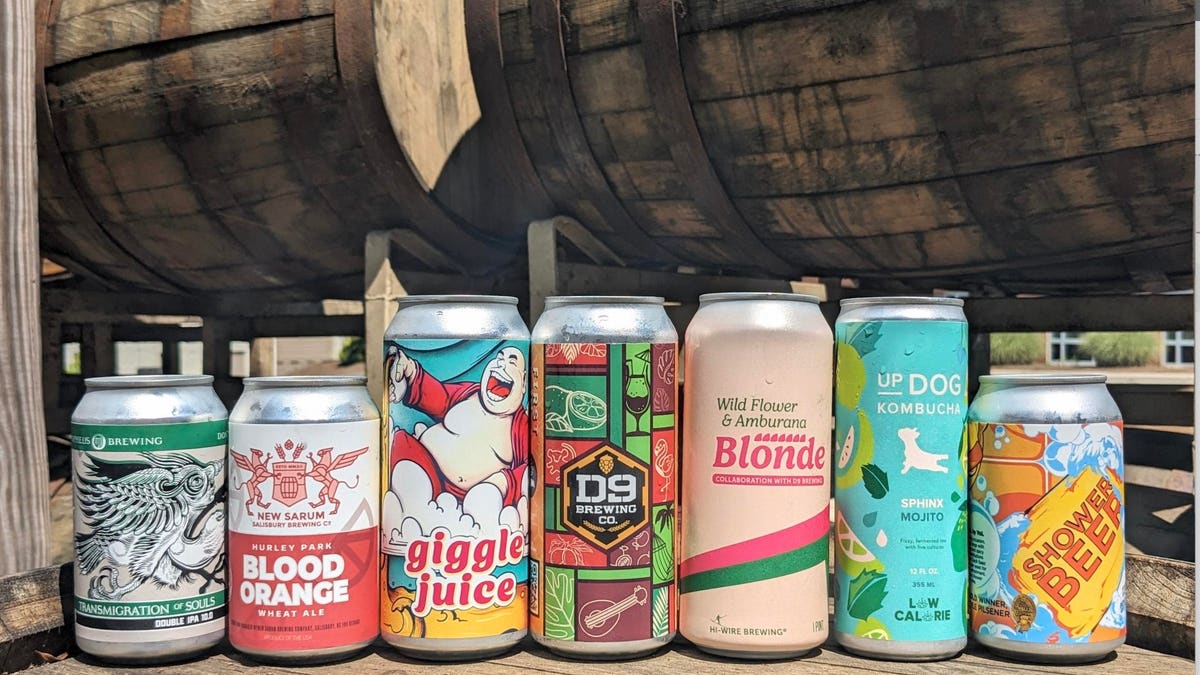Over the last few years, craft beer has dealt with the same issues that have arisen whenever any breakthrough industry approaches maturity. The quick and easy growth days are over, and a new reality has settled in. One that requires participants to evolve their business models and adjust their strategies to survive in a highly competitive marketplace.
One newcomer, Bevana Partners, is bringing an IT mindset to the craft beer landscape, and their platform and ideas might be what brewers need moving forward, especially after a rough 2022.
According to the Brewers Association, the number of craft breweries in the United States hit 9552 in 2022, a historic high. But that number also coincides with a volume number that was roughly flat-increasing by just +0.1% in 2022, better than the overall beer market’s decline of -3% by volume.
One of the most telling numbers for craft beer malaise is the struggle of the 182 larger regional craft brewers who account for the lion’s share of volume. The top 50 declined 2%, and the other 132 saw a 55% decline in volume, many by double digits. The main driver for these numbers is craft beers’ increasingly complex distribution landscape.
“A lot of the slowdown in the total numbers is a result of that distributed market becoming much more competitive,” says Bart Watson, the chief economist for the Brewers Association. “That doesn’t mean that overall demand for craft brewing is slowing, as much as we’re seeing some challenges in distribution, and there’s still opportunities in that hospitality focus.”
That’s where North Carolina-based Bevana Partners comes in. It’s the brainchild of its founder Andrew Durstewitz, a veteran of the IT industry and a craft brewer. As the founder of D9 Brewing in 2014, he understands the industry and recognized that it would need to evolve to continue its momentum in the future. His goal is to create the ultimate craft brewing accelerator.
Craft brewers have had to deal with a challenging landscape from day one as a controlled product that must deal with different government regulations in each state. The first battle fought decades ago was introducing the idea that beer could be full flavored and not just the mainline pilsners that the major brewers peddled. Concurrent to that was the development of specialized brewing equipment, procurement of supplies, and learning of the nuances of the alcohol market by the newcomers.
When many pioneering brands took root, their next hurdle was dealing with distribution and the three-tier system prevalent in most states that require brewers to sell their packaged product to independent wholesale distributors who then dealt with retailers. As craft beer caught on and spread, especially after 2001, the barriers to landing their products in grocery, convenience, and liquor stores, while challenging, weren’t impossible. Craft beer was red hot, delivering double-digit growth, and brewers could continually release new products for sale.
But an overabundance of selection coupled with the pandemic and shifting consumer tastes put a halt to that. These days the big brewers, RTDs, seltzers, and a slew of other products, plus supply chain issues, have pinched the ability of craft brewers to come to market. For many, the level of sophistication required to maintain momentum can be overwhelming. Bevana Partners offers to take all those headaches off the shoulders of brewers and let them get back to doing what they best-create and innovate new products.
“To be a brewery these days with an eye on growth, you must be a manufacturer, a brand developer, a hospitality manager, a three-tier sales organization, and a logistics company. It’s just impossible for smaller companies to manage that,” says Durstewitz. “At the end of the day, what we’re doing with Bevana is creating a cloud-type infrastructure for brewing that frees up brewers. We deal with their distributors, handle production issues, and monitor the market to ensure the right packages are being made. We bring a level of sophistication that mirrors that of the major breweries.”
People are listening. So far, in 2023, they have brought twelve breweries under their umbrella, raising their total to twenty, a number that is sure to expand. Instead of acquiring with them they instead partner with them. Their goal is to create a beverage growth accelerator, much like big tech fuels the growth of startups by offering tech accelerators like Techstars.
By uniting all the breweries under one house, they have created a formidable player in the market. One that has clout and can get a seat at a bigger table, one that’s hard for independent brewers to get a seat at.
Working with state-of-the-art beverage supply chain software from Encompass, they use live data to forecast and predict market trends accurately. They then use this information to produce the can and bottles needed, something Bevana manages, often using contract breweries to handle demand. When they meet with distributors and large retail chains, they offer an organized and focused portfolio of brands they can partner with to make profits.
In keeping with the changing marketplace, they also launched a robust online portal that enables all of their partner brands access to 42 states for sales. By building an innovative and quick-to-adapt platform that takes its cues from the technology industry, Bevana Partners is betting it offers precisely what the evolving craft beer market needs.
“Other industries have gone through the same type of maturity where all the disparate parts were brought under one roof using new tools and technologies,” says Durstewitz. “ Look at what Amazon did for small independent manufacturers by giving them a massive platform to sell on, or what cloud technology did for small tech companies by removing the weight of data centers. We’re doing the same thing for the beverage industry. If we can offer that to craft beer, we can put it into a position to thrive moving forward.”
Read the full article here





